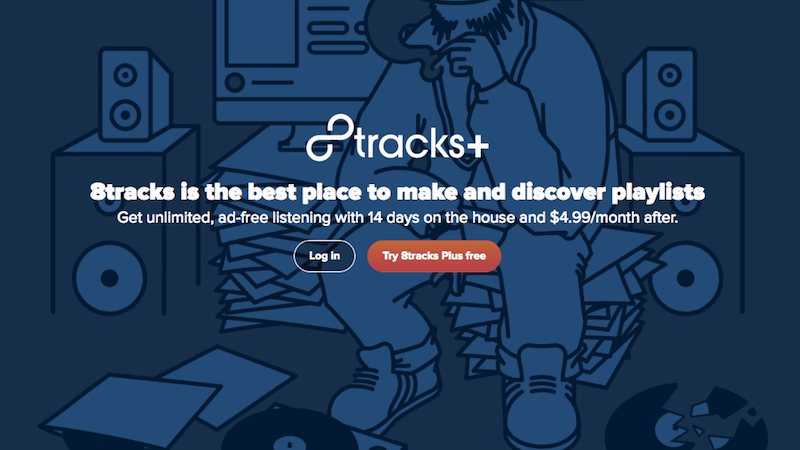
Blame it on bad passwords or the fact that the Internet is just no longer safe, but reports of data breaches seem to have shot up in the past few years. In what seems to be a breach similar to the massive Dropbox and LinkedIn debacles of the past, popular Internet radio service 8tracks has been hacked, potentially leaving millions of accounts vulnerable.
The data breach reportedly gave hackers account details of millions of users dating back to 2008, Motherboard learned from breach notification site LeakBase. The site obtained a dataset of 6 million 8track usernames, email IDs and hashed passwords, out of a total 18 million accounts. It further found that the passwords were hashed using ageing but still widely used SHA1 algorithm, something Google recently cracked, leaving them unsecure.
8tracks is aware of the breach and explained in a blog post that the hashes are difficult to access and can only be done through brute force attacks, which is complex and unlikely. However, the company is still urging its users to change their 8tracks passwords as well as on any other site where they may have used the same password. The Internet radio service informed Motherboard that it would notify its customers and has identified the attack vector used by the hacker, securing the account in question. They also reassure that the stolen data did not include credit card information.
Those using 8tracks may want to change their passwords as well as make sure the same password is not being used elsewhere. It also advised to use a two-factor authentication and password managers like LastPass or 1password, but maybe not OneLogin.
[“Source-gadgets.ndtv”]





 HONG KONG, CHINA–(Marketwired – Jun 21, 2017) – A new study has found that Singapore businesses are three times more likely to be switched on to Internet Marketing than their rivals in Hong Kong. The research, carried out by WL Media HK, shows that Hong Kong firms are being left in the digital dust by Singapore Exchange listed companies, who seem to be more digital savvy and better able to promote their firms online.
HONG KONG, CHINA–(Marketwired – Jun 21, 2017) – A new study has found that Singapore businesses are three times more likely to be switched on to Internet Marketing than their rivals in Hong Kong. The research, carried out by WL Media HK, shows that Hong Kong firms are being left in the digital dust by Singapore Exchange listed companies, who seem to be more digital savvy and better able to promote their firms online.
 A
A




 The question of whether or not the internet is making us miserable is intertwined with the one that wonders whether it’s also tearing us apart. The trolls, the memes, the doxing: They all serve to box us into our own echo chambers, safe spaces where we surround ourselves with those who share our views. A new book from Seth Stephens-Davidowitz, Big Data, New Data, And What The Internet Can Tell Us About Who We Really Are, argues that it might not be so clear-cut.
The question of whether or not the internet is making us miserable is intertwined with the one that wonders whether it’s also tearing us apart. The trolls, the memes, the doxing: They all serve to box us into our own echo chambers, safe spaces where we surround ourselves with those who share our views. A new book from Seth Stephens-Davidowitz, Big Data, New Data, And What The Internet Can Tell Us About Who We Really Are, argues that it might not be so clear-cut.
/cdn0.vox-cdn.com/uploads/chorus_image/image/54788189/microsoft-build-2016-event-verge_48.0.0.jpg)



